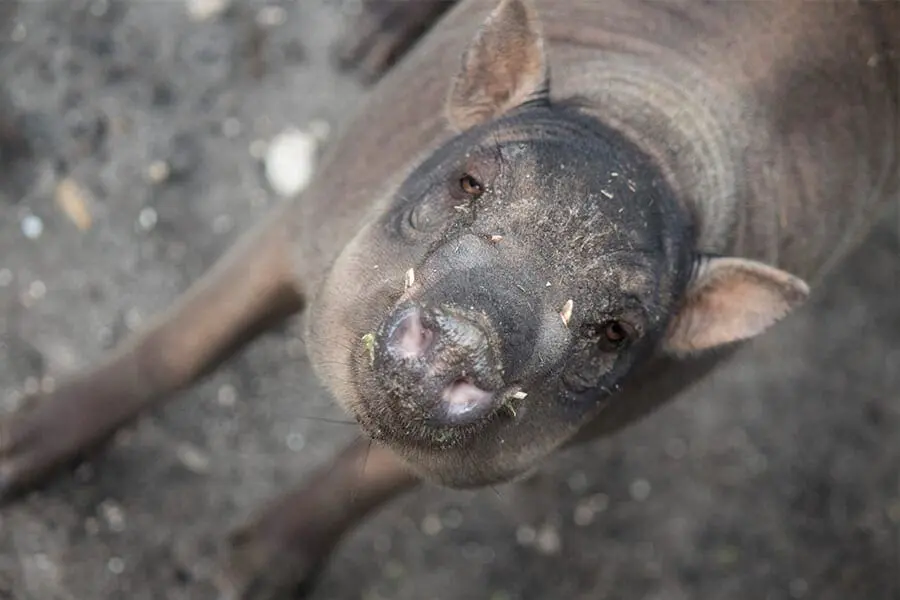

Babirusas like this cutie are one of the animals whose habitats are threatened by palm oil production.
This Halloween, what’s in your candy may be more harmful than you think. Palm oil is a very common household ingredient that can be found in products ranging from shampoo to snack foods. While not harmful to humans, unsustainable palm oil threatens the habitats of animals like orangutans, tigers and babirusas.
The production of palm oil can cause deforestation, and its development is also rapidly encroaching on the habitats of animals. For reference, over 3.5 million hectares of Indonesian and Malaysian forest have been destroyed in the last 20 years to make way for palm oil production.
We pride ourselves in using products containing sustainable palm oil whenever possible, and you can help, too! Since a certain ~spooky~ season is coming up, we’ve compiled some tips on how to make sure your Halloween is as environmentally friendly as possible.
- Check the labels on your candy! Palm oil can be listed under various names on product labels, including cetyl palmitate, Elaeis guineensis, ethylhexyl palmitate, hydrated palm glycerides, octyl palmitate, palm kernel, palmate and sodium kernelate.
- Use Cheyenne Mountain Zoo’s convenient Sustainable Palm Oil shopping guide for an easy way to check which candies are not harmful to the environment. The guide is available on the App Store and Google Play.
- For reference, palm-oil free candies include Hershey’s Kisses, Airheads, M&Ms, Reese’s Peanut Butter Cups and Tootsie Rolls.
Visit Cheyenne Mountain Zoo’s shopping guide for a more comprehensive list of sustainable or palm-oil free candy.
